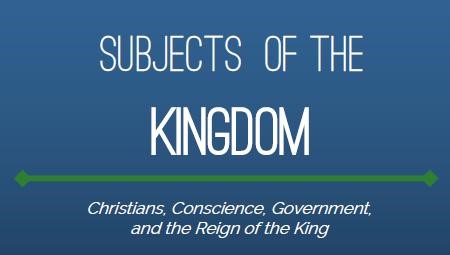This final post follows from this one, this one and this one, in which I began sharing commentary on a post on the Logos Academic Blog. Here is the most substantial, worthy comment from someone else on that article. Please note the reliance on data and the good follow-up questions, and please don’t miss my summary statement at the bottom. I’m explicitly inviting comment and challenge to that.
Joshua: Todd, Thank you for your post, a few questions concerning your analysis (wondering if leaps were made on some points):
1. How many of the 135 gospel occurrences are unique pericopes?
I noticed that you paid particular attention to the number of pericopes in the epistles but not in the gospels–why was that? From your data, it seems that we would want to consider that the 103 occurrences in the synoptic gospels describe some of the same events/speeches, meaning that the gospel writers might agree on the emphasis of kingdom in recording Jesus’ word 30ish times. The analysis would then emphasize 30ish rather than 135. That is, instead of adding up the occurrences to gain a picture of emphasis, wouldn’t we want to compare the # of unique pericopes to get that data?
2. Is the drop-off from the gospels to the epistles individual authors really that significant of a drop-off?
Asking this question in 2 areas: First, in the area of the number of occurrences: It seemed like you were making a particular point based upon the falling off of the number significantly. How significant is the drop really when not thinking about “135” to “27” but “30ish” (i.e., unique occurrences in the gospel accounts) to “20ish” (non-gospel accounts). Do you have those exact figures too? Second, in the area of appropriate context. I considered from your data that if the drop is significant where would the places be that we should be seeing kingdom emphasis that we don’t. That is, as solutions to church problems are discussed in the epistles, where would be the “missed opportunities” to use kingdom themes. Of course, we don’t want to place ourselves above the text in this type of analysis but noticing the places it isn’t mentioned might be part of this study to understand “kingdom” better.
3. Is a word study of one word alone sufficient to do biblical theology?
I noticed you drew attention to biblical theology but your analysis seemed to be based on one particular word (not a word group, synonyms, or thematic phrases surrounding that word). What other words/phrases should be considered for a biblical theology of kingdom in the NT (e.g., throne, rule, judge…)? I would think that a phrase you separated out “David’s coming kingdom” would be ripe to include in Messiah’s kingdom because of the Davidic covenant (2 Sam. 7). Could you explain why you isolated this one word alone for the implications of your analysis?
Me: These are great questions, constituting good contributions to this discussion. Obviously, Todd can speak for himself, but I’d like to share some thoughts, too. First, combining questions 1 and 2: you are probably right that it’s not nearly as significant a “drop-off” if all the gospels are taken together. Common gospel sources (i.e., Q and oral tradition) ought to come into this picture, and any differences among the synoptics would warrant text-critical and theological consideration.
On the other hand, chronology of authorship might be considered, as well. By that I mean that if Mark is presumed to have been drafted earliest, his usage of “Kingdom” might be viewed differently from Luke’s. Let’s say Luke does not include something that Mark included. hat may indicate a chronological “drop-off” (but not necessarily a background decrease in concern over Kingdom among Christ-devotees). If we assume all the synoptics roughly reached final form sometime in the late 60s, this paragraph loses significance.
Question # 3 might be considered differently if the sphere is assumed to be biblical/textual studies instead of “biblical theology.” If this is a strictly text-based word study, it seems a sufficient approach, but if we are trying to expand to theology a la Kittel and others, we might legitimately expand the data field to include words phrases such as those you mention. It seems to me that both are important — both strict word studies in the available texts and biblical theology, that is.
What different perspectives there are about the Kingdom of God/Kingdom of Heaven! (The latter is almost exclusively Matthew’s term.) We have seen a few of the perspectives in this series of posts.
The aggrandized Christianese notion of the “Tribulation” and expectations of a physical kingdom obscure the deeper reality that God reigns. He is now, and always has been, in His Kingdom. I will close this lengthy recap of discussion with a summary of my own. This is meant neither as a last word nor as supposed evidence of progression. I don’t purport to have arrived or to know anything final, but neither am I willing to languish in a sea of vapid meaninglessness because of the regressive awareness within the institutional church.
Please share your thoughts/challenges/comments on the statement below.
In full view, we may say that God’s kingdom, i.e., God’s reign, has always been and always will be. Humans have messed it up in various ways and to various extents—e.g., in the Garden of Eden, in the time of the Judges, the Maccabees, and others. When Jesus came, the final understanding came into being. That understanding of the kingdom means that God’s reign, which was in a dim sense manifested physically in such times as Joshua’s, David’s, and even the Babylonian captivity, ultimately is unseen and eternal.

